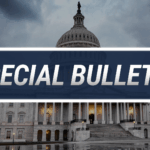Knicole C. Emanuel Esq.
For more than 20 years, Knicole has maintained a health care litigation practice, concentrating on Medicare and Medicaid litigation, health care regulatory compliance, administrative law and regulatory law. Knicole has tried over 2,000 administrative cases in over 30 states and has appeared before multiple states’ medical boards. She has successfully obtained federal injunctions in numerous states, which allowed health care providers to remain in business despite the state or federal laws allegations of health care fraud, abhorrent billings, and data mining. Across the country, Knicole frequently lectures on health care law, the impact of the Affordable Care Act and regulatory compliance for providers, including physicians, home health and hospice, dentists, chiropractors, hospitals and durable medical equipment providers. Knicole is partner at Nelson Mullins and a member of the RACmonitor editorial board and a popular panelist on Monitor Monday.

























